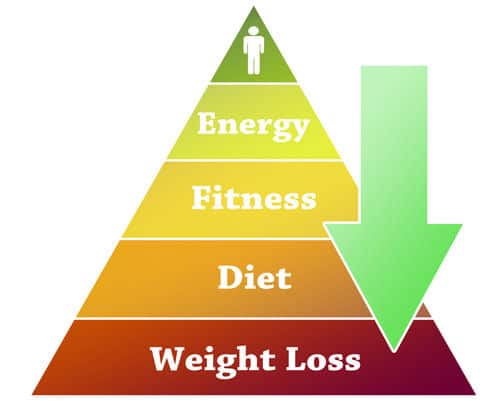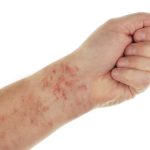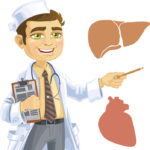
Previous
Onions Play a Flavorful Role in Liver Health

Next
Cirrhosis Warning: Skip These Salty Dishes
Liver Cancer Risk Heightens Weight Loss Urgency
Understanding the plea for insurance coverage of lap-band surgery to prevent liver cancer reiterates why stopping fatty liver disease is imperative.
Liver cancer has always been recognized as a serious illness; however its increasing prevalence is putting liver cancer front and center as a healthcare priority. Clinicians are finding that the explosion in the rate of fatty liver disease is likely responsible for the growing number of liver cancer cases worldwide. Thus, strategies to thwart a fatty liver is taking on an even greater urgency – even urging one hepatic doctor from Australia to push lap-band surgery as a logical liver cancer preventative measure. Although getting health insurance to cover this surgical weight¬ loss procedure may protect some against liver cancer development, there are less expensive, less invasive, safer routes to accomplish this same goal.
An estimated one in every four American adults has a fatty liver, a statistic that is resulting in heightened awareness of this problem. Thus, more physicians are evaluating patients for fatty liver and a substantial number of people are learning they are affected. More often than not, doctors are informing these patients they have a fatty liver but are assuring them there is no reason to be concerned; just avoid alcohol. Unfortunately, this dismissal of a potentially serious illness is insufficient.
Non-alcoholic fatty liver disease is casually referred to as a fatty liver – and is frequently associated with obesity. Previously, the initial stage of nonalcoholic fatty liver disease (NAFLD) was considered to be relatively harmless and completely reversible. Complications of NAFLD were assumed to develop only after the fatty liver had advanced to severe inflammation and permanent hardening and scarring of liver tissue. Liver cancer was regarded as an end-stage result developing only after a long struggle against liver disease.
Regrettably, there is evidence that the first stage of NAFLD increases the risk of liver cancer on its own. According to Rubayat Rahman, MD, MPH, a fellow in the division of gastroenterology and hepatology at the University of Missouri in Columbia, simple steatosis (early stage fatty liver) might be a risk factor for liver cancer in the absence of more advanced stages of NAFLD. As presented at The Liver Meeting 2012: American Association for the Study of Liver Diseases 63rd Annual Meeting, Dr. Rahman and colleagues studied nearly 18,000 people 65 years and older who were diagnosed with primary liver cancer and liver pathology without multiple risk factors. They found:
- NAFLD was the third most common risk factor for hepatocellular carcinoma (the most prevalent type of liver cancer).
- Of the patients with NAFLD and hepatocellular carcinoma, 36 percent did not have cirrhosis (permanent hardening and scarring of the liver).
Due to the strong link between non-alcoholic fatty liver disease and liver cancer, researchers are beginning to recognize the importance of preventing a fatty liver. The favored lifestyle changes of eating a low-fat, high-fiber, low-sugar diet and exercising every day seems to be the best way to prevent the worsening of NAFLD – and even cause it to go away on its own. Thus, eating a nutritious, liver-supportive diet and daily physical activity could also prevent hepatocellular carcinoma. However, many people find these two lifestyle practices (diet and exercise) to be extremely difficult.
The challenge to prevent the cascade of obesity to fatty liver to liver cancer is being addressed by Geoffrey Farrell MD, FRACP, Professor of Hepatic Medicine at Australian National University Medical School. According to Dr. Farrell, obesity surgery, such as lap-band surgery, needs to be covered by insurers to stop the chain of disease that begins at obesity from ending in liver cancer.
Without refuting Dr. Farrell’s justification for obesity surgery, the best possible medicine for liver cancer prevention seems to be clear. Although few people want to hear it, and even fewer find the strength to commit, diet and exercise still reign as the least expensive, least invasive and safest solutions for stopping and reversing NAFLD – a change that is better than any pill or surgery for preventing hepatocellular carcinoma.
http://www.austin.org.au/research/conferences/, Conferences and Events, Retrieved November 3, 2013, Austin Health Victoria, 2013.
http://thecultureofhealth.com/the-obesity-epidemic-solution/, The Obesity Epidemic Solution, Aimee, Retrieved November 3, 2013, Metro Pop Theme on Genesis Framework, 2013.
http://www.medscape.com/viewarticle/775289, NAFLD Without Cirrhosis Linked to Liver Cancer Risk, Daniel M. Keller, Retrieved November 3, 2013, WebMD, LLC, 2013.
http://www.skynews.com.au/health/article.aspx?id=912178, Fatty Liver Disease and Cancer “Linked”, Retrieved November 2, 2013, Australian News Channel Pty Ltd, 2013.










